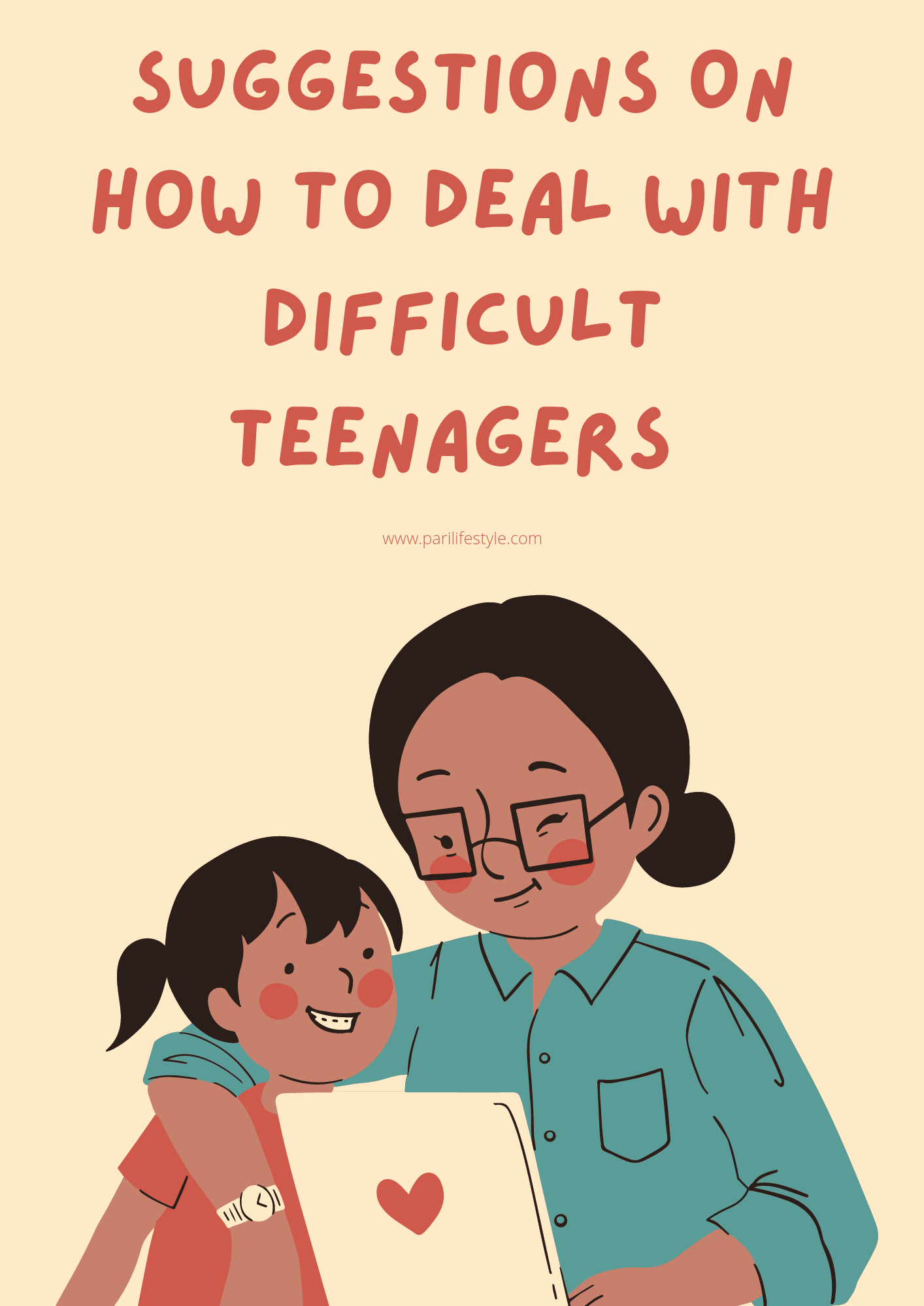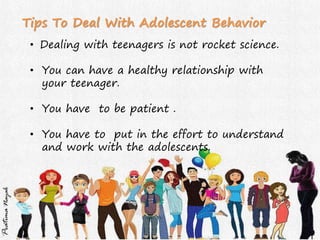First Class Info About How To Deal With Adolescence

The physical and psychological changes that take place in adolescence often start.
How to deal with adolescence. Here are five guidelines for how to deal with your teenage son. I want to avoid that as much as possible as the proup from the previous incident will also join again and most likely it will change from cyberbullying to both cyber and in person bullying. Encourage your teen to share their feelings through journaling, talking to a therapist or supportive friends to help process the full range of difficult emotions.
Make sure that you keep communication channels open with your teenager. Listen calmly and concentrate on hearing and understanding your children's point of view. 2helping your child through early adolescence the journey through these years is easier when parents, families and caregivers learn as much as they can about this time in children’s lives.
Have some cyber rules and boundaries for everybody at home. Consideration of each adolescent development domain supports a tailored approach for service delivery—effectively meeting the needs of this population and their families. From the above assertion, we can infer that in order to be able to curb rebelliousness among teens, itwould be productive to deal with it at the onset, than after it has.
In adolescence, a girl is exposed to a lot of hormonal and psychological changes, which makes her feel excessively. The total for all americans over age 12 having major depressive episodes in 2020 was 9.2%. Trust is important for any relationship.
Multiple physical, emotional and social changes, including exposure to poverty, abuse, or violence, can make adolescents vulnerable to mental health problems. Limit the use of the mobile phone to a few hours in a day, and avoid bringing the phone to the bedroom as it is. While it may be tempting to send them off on the bus, remember that giving them lifts to places may offer a.
Angry or nervous, in addition to other. More tips to deal with teen behavior 1. Adolescence is the transitional stage from childhood to adulthood that occurs between ages 13 and 19.
How to deal with nervous adolescence. First, parents and teen boys agree to set boundaries and rules that both agree on. An article in the wall street journal talks about a longitudinal study which suggests that it is far more beneficial for parents to remain empathetically engaged during.


















